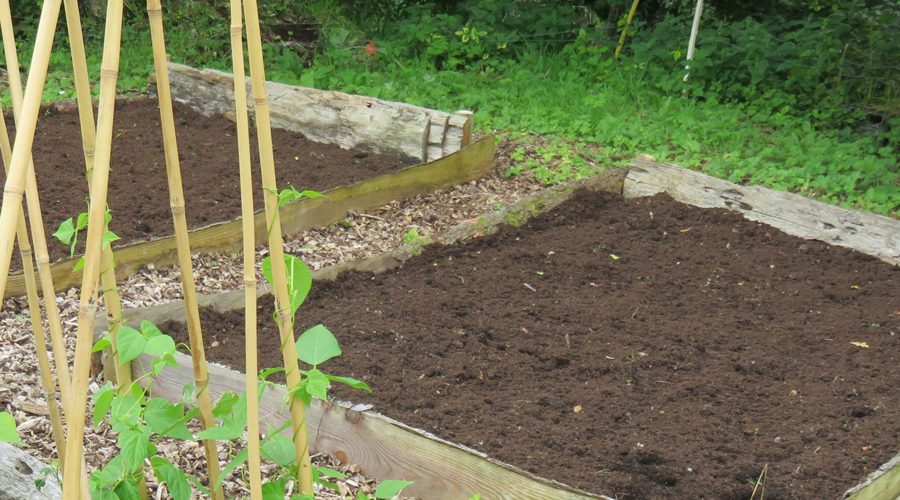A lot of gardening books encourage the practice of crop rotation. It is simple enough to do, but often an unnecessary job for the home grower. Essentially, it involves planting certain veg types (e.g. roots) in Bed A in year 1, and then moving them to Bed B in year 2, Bed C in year 3 and Bed D in year 4 so that you don’t grow them in the same place two years running. The idea behind it is to avoid depleting the soil of certain nutrients, and to avoid the build up of disease in the soil.
First off, crop rotation IS a good practice, and we are by no means discouraging it. So, if it is something that you have been doing for years and with good results, then carry on! However, for those that are relatively new to gardening or perhaps a little short on time or knowledge, we’d suggest that it’s not strictly necessary in a home-scale veg plot/allotment and that you shouldn’t worry about it. Instead just feed your soil and get growing.
By feeding the soil (i.e adding plenty of organic matter such as compost or well-rotted manure) at the start of the spring season you will keep the soil in pretty good condition and give it a boost of nutrients. If the soil is in good condition, then it is highly unlikely that your homegrown crops will deplete it of nutrients. So, if you planted roots in one bed last season, and you’ve added lots of fresh compost for this season, then it is fine to plant roots in the same bed again.
In terms of the soil harbouring disease, then, yes, this can happen. More often than not, the disease in question will be a fungal disease. The fungal spores can lie in the soil, and can subsequently affect plants that are planted there. Well, we’ve got 2 points to make about this, firstly the spores won’t be exclusively in one bed – spores get blown around by the wind, and are just as likely to be present in other beds in your veg patch so crop rotation won’t necessarily avoid re-infection. Secondly, plants build up much better defence to fungal diseases in good soil conditions…they rely on various microbes to help them fight infections. So if there is plenty of fresh organic matter added, then they will have a better chance of being resistant to any diseases that are lurking in the depths of the soil.
In closing, if you are not practising crop rotation then don’t worry too much about it. Just feed the soil well with organic matter, plant your plants and enjoy your growing!

